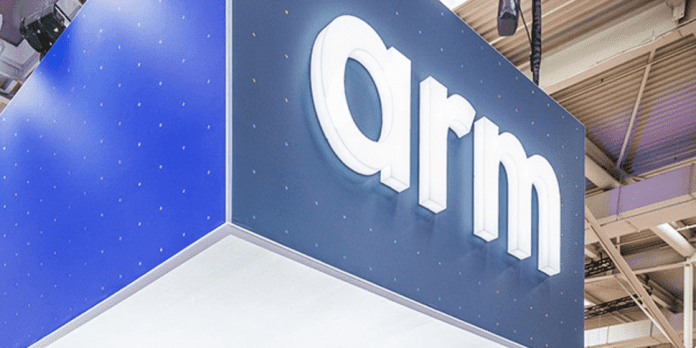Arm has announced a new 64-bit Linux-capable Cortex-R processor, designed for the kind of computational edge-based storage solutions that will underpin new heavy-duty AI applications in demanding industrial IoT scenarios.
The new top-of-the-line Arm Cortex-R82 is the company’s first 64-bit, Linux-capable processor in the company’s Cortex-R range, geared for real-time and safety-critical machine applications. The Cambridge-based company said cloud-based data storage and compute functions will no longer cut it for the most demanding IoT workloads, which require ultra-reliable and low-latency processing, and close-quarter edge-based connectivity.
Neil Werdmuller, director of storage solutions at Arm, commented: “Computational storage is emerging as a critical piece of the data storage puzzle, putting processing power directly on the storage device, resulting in improved security, lower latency and energy efficiency.”
There will be 79 zettabytes of IoT data in 2025, said Arm; but it will be worthless unless it can be properly processed and regurgitated. In the most high-end IoT use cases, this means a real-time round-trip, between the sensor device and processing unit, which requires on-premise and even on-sensor storage and compute functions.
“Data is the new oil,” said Werdmuller, quoting the already-old aphorism about digital capitalism. “It’s an interesting analogy – and just like oil, its value is not usually found in its crudest form,” he said. “The closer to the data source we can produce these insights the better, because of the improved security, latency and energy efficiency enabled.”
The Cortex-R82 provides a two-fold jump performance, compared to old Cortex-R generations. It offers up to 1TB of dynamic random-access memory (DRAM), enabling machine learning to run on edge-based storage applications at lower latency. Its Neon single instruction multiple data (SIMD) extension provides additional power, it said.
Arm claims 85 percent of hard disk drive controllers and solid-state drive controllers are based on its blueprints. Most run bare-metal/RTOS workloads to store and access data; the Cortex-R82 introduces an optional memory management unit (MMU) to allow for rich operating systems to run on the storage controller.
Arm offered certain examples of the new efficiencies afforded by computational storage: large files can be retained at the edge, increasing security and privacy; video can be transcoded or encoded for streaming, and adapted for different bit rates and resolutions.
It also offered a couple of ‘vertical’ applications: airlines can run real-time analysis “on the drive”, when a plane lands, to ensure next flights are safe for takeoff; parking lots can run video checks on licence plates, with multi-core (up to eight cores) storage to record the data in the daytime, and process it for billing at night.
Werdmuller said: “As storage controllers are becoming more diverse to address different markets and features, Cortex-R82 delivers an architecture to provide this extreme flexibility – reducing costs and time to market. Enabling a faster start for developers In order to develop the SoCs needed for these future use cases, our partners need access to easy and cost-effective technology – and perhaps more importantly, they need to know that the software just works.”

